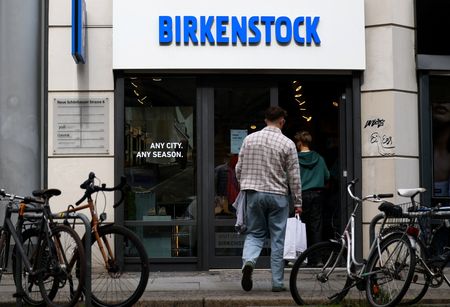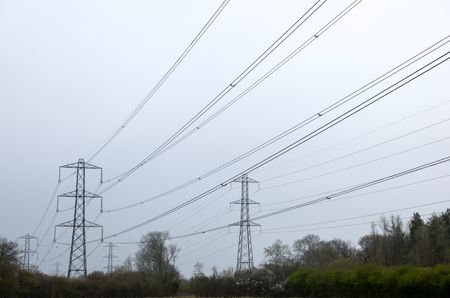By Miranda Murray
BERLIN (Reuters) -Sentiment among German consumers is expected to fall for the third time in a row in September, with households’ growing concerns about possible job losses and uncertainty about inflation weighing on the mood, a survey showed on Wednesday.
The consumer sentiment index, published by the GfK market research institute and the Nuremberg Institute for Market Decisions (NIM), declined to -23.6 points from a slightly downwardly revised -21.7 points the month before.
Analysts polled by Reuters forecast a reading of -22.0.
A sharp fall in income prospects, which hit their lowest level since March, played a significant role in the overall decline, according to NIM consumer analyst Rolf Buerkl.
“Growing fears of job loss are causing many consumers to remain cautious, especially when it comes to major purchases,” said Buerkl.
Uncertainty about how inflation will develop is also affecting consumers, who fear that the geopolitical situation and the U.S. government’s tariff policy could lead to higher energy prices, among other things, according to the survey.
“This further dampens hopes for a significant recovery in consumer sentiment this year,” added Buerkl.
Unemployment in Germany has been slowly creeping up since 2022, and the country is close to having 3 million unemployed people for the first time in a decade, as the labour market feels the effects of the country’s sluggish economy.
Germany’s federal labour office is set to release its latest data on Friday, with analysts polled by Reuters expecting the seasonally adjusted jobless figure to rise by 10,000 in August.
“The stagnating economy is making companies act cautiously when it comes to personnel planning,” said the Ifo economic institute’s head of surveys, Klaus Wohlrabe, on Wednesday.
Europe’s largest economy shrank by 0.3% in the second quarter, dimming expectations of a recovery this year.
Households’ economic expectations and the willingness to buy both fell, dropping to their lowest levels since February, according to the survey.
Germany’s HDE retail association called on Chancellor Friedrich Merz to strengthen the economy in an open letter published on Wednesday, calling for low- and middle-income households in particular to receive targeted relief.
“It’s easier for the federal government to influence (the domestic economy) than the complex international situation,” said the HDE, adding that tax increases should also be ruled out.
SEP AUG SEP
2025 2025 2024
Consumer climate -23.6 -21.7 -21.9
Consumer climate components
AUG JUL AUG
2025 2025 2024
– economic expectations 2.7 10.1 2.0
– income expectations 4.1 15.2 3.5
– willingness to buy -10.1 -9.2 -10.9
– willingness to save 15.8 16.4 10.7
NOTE – The survey period was July 30 to August 11, 2025.
An indicator reading above zero signals year-on-year growth in private consumption. A value below zero indicates a drop compared with the same period a year earlier.
According to GfK, a one-point change in the indicator corresponds to a year-on-year change of 0.1% in private consumption.
The “willingness to buy” indicator represents the balance between positive and negative responses to the question: “Do you think now is a good time to buy major items?”
The income expectations sub-index reflects expectations about the development of household finances in the coming 12 months.
The additional business cycle expectations index reflects respondents’ assessment of the general economic situation over the next 12 months.
($1 = 0.8618 euros)
(Reporting by Miranda Murray, Editing by Friederike Heine and Toby Chopra)









